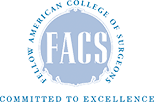Please purchase these over-the-counter medications prior to your procedure:
- Refresh PM eye ointment
- Refresh Plus eye drops
Give us a call at (203) 924-2900
Activity
A blepharoplasty is a procedure that requires you to minimize the potential for bleeding in the surgical sites by reducing activities that can increase blood pressure, especially in the face, such as bending forward, lifting or straining. As well, any exercise is to be strictly avoided. This is not a procedure that requires “bed rest” but any activity for the first few days should be limited to walking through your house only. Strenuous activity should be avoided for three weeks.
You may drive when you f”eel safe to do so responsibly
When resting or sleeping use pillows under your back and head to reduce racial swelling.
Medications
Use your prescribed medications as directed. Please read all package inserts for any medications or products you use. You have been prescribed narcotic pain medication. They cause constipation so consider taking an over the counter stool softener while using the pills. You may use Tylenol or Ibuprofen (Motrin or Advil) instead of narcotics if your pain is not significant. Do not take additional Tylenol if using narcotic pain pills as they may also contain Tylenol. If you do not have pain do not take prescription narcotics.
Drops and Ointments
Use Refresh Plus drops (purchased separately, available over-the-counter} in both eyes every 1-2 hours while awake.
Use Tobradex eye drops (prescribed by Dr. Reilly), 3 drops in each eye, 3 times per day for the first 5 days.
Apply Refresh P.M. ointment (purchased separately, available over the counter) inside the lower eyelid every night at bedtime. This will make your vision blurry, but it will clear as the ointment iS absorbed. You can also wipe it off in the morning so you can see better. If you awaken in the morning with eye irritation or red eye — use more Refresh PM at night as your eyelids may not close completely for a few weeks after surgery.
Wound Care
Apply a thin layer or”the supplied antibiotic eye ointment (given to you at the hospital) to the incisions twice each day by rolling a pea sized amount over the incisions with a fresh Q-tip.
You may use ice water-soaked gauze pads on the eyelids throughout the rest of the day after your surgery and the following morning which way reduce swelling and bruising.
The 2nd day after surgery you can begin washing your face (but not your eyelids) gently with soap and rinse with water. It will not hurt to get water on the stitches or in the eyes.
Diet
A light diet is best after surgery when you get home. Begin by taking liquids slowly and progress to soups or jello. You can start a regular diet the next day.
Expect bruising and swelling of the surgical areas. You can also expect some bleeding from the stitch lines. However, you should call the office phone number if you have a continuous bloody drip, significantly more swelling on one side than the ‹other, changes in vision (other than that caused by the ointment), any severe eye pain, nausea or vomiting.
For any minor concerns or questions please call Dr. Reilly on his cell phone 203- 205-6834. For any significant changes to your health or serious concerns regarding your condition you should immediately call 911 or proceed to the nearest emergency room for evaluation. Do not delay seeking medical treatment by texting Dr. Reilly or by leaving a phone message.
THANK YOU FOR PUTTING YOUR TRUST IN US!







